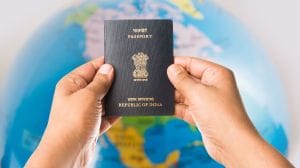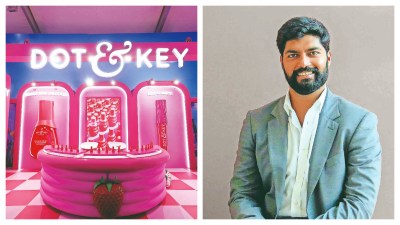Tuberculosis (TB) is a treatable disease, but every year millions of cases go undiagnosed – often because people don’t have convenient access to healthcare services. In India alone, around 2.17 million cases have been reported between January and October this year; the country accounts for about 25% of the global TB burden. Improving diagnosis is critical to eradicating TB, and artificial intelligence (AI) can play an important role in improving detection.
Salcit Technologies has built a product called Swaasa that uses AI to analyse cough sounds and assess lung health. The AI platform can work on smartphone, tablet or laptop, and provides easy and cost-effective tests to reach larger populations at a much higher frequency of testing. Now, the Hyderabad-based company is exploring using Google’s Health Acoustic Representations (HeAR) bioacoustic foundation model on Swaasa. “HeAR is designed to help researchers build models that can listen to human sounds and flag early signs of disease, and can help Salcit Technologies extend screening for TB more widely across India,” Bakul Patel, senior director, Global Digital Health Regulatory Strategy, Google, told FE in an interview.
According to the doctors at AIIMS, New Delhi, screening for chronic respiratory diseases is an unmet need as due to limited human expertise and lab facilities, it is not possible to do pulmonary function tests at primary care level centres. Venkat Yechuri, CEO, Salcit Technologies, said, “Our product, Swaasa, is a remote lung health assessment device that detects and monitors lung conditions by analysing solicited cough sounds. So far, over 300K assessments have been done on the platform.” The Karnataka Health Promotion Trust (KHPT) has deployed Swaasa in some districts to improve the quality of presumptive TB cases through enhanced screening methods. The solution is also being explored in other states including the North East for a wider deployment.
Also read: Microsoft, Apollo Hospitals build AI-powered platform to predict cardiovascular disease risk score
“We strongly believe that AI is poised to radically transform the way we prevent, diagnose, and treat diseases,” emphasises Patel. In enhancing screening and diagnostic capabilities, for example, Apollo Radiology International (ARI) is using the image recognition capabilities of Google’s AI models for mobile screenings for TB, lung and breast cancer.
Chest X-rays are a common method of screening for TB, but there are not enough trained radiologists to interpret images at scale. Further, TB is usually diagnosed with tests that are often not available in rural settings or areas where there are few hospitals and healthcare centres. The AI systems developed by Google are assisting radiologists in interpreting chest X-ray scans for TB.
Google has licensed its diabetic retinopathy AI model to Forus Health and AuroLab in India, and Perceptra in Thailand, to support approximately six million AI-assisted screenings for diabetic retinopathy in the two countries over the next 10 years, at no cost to patients, Patel added.









